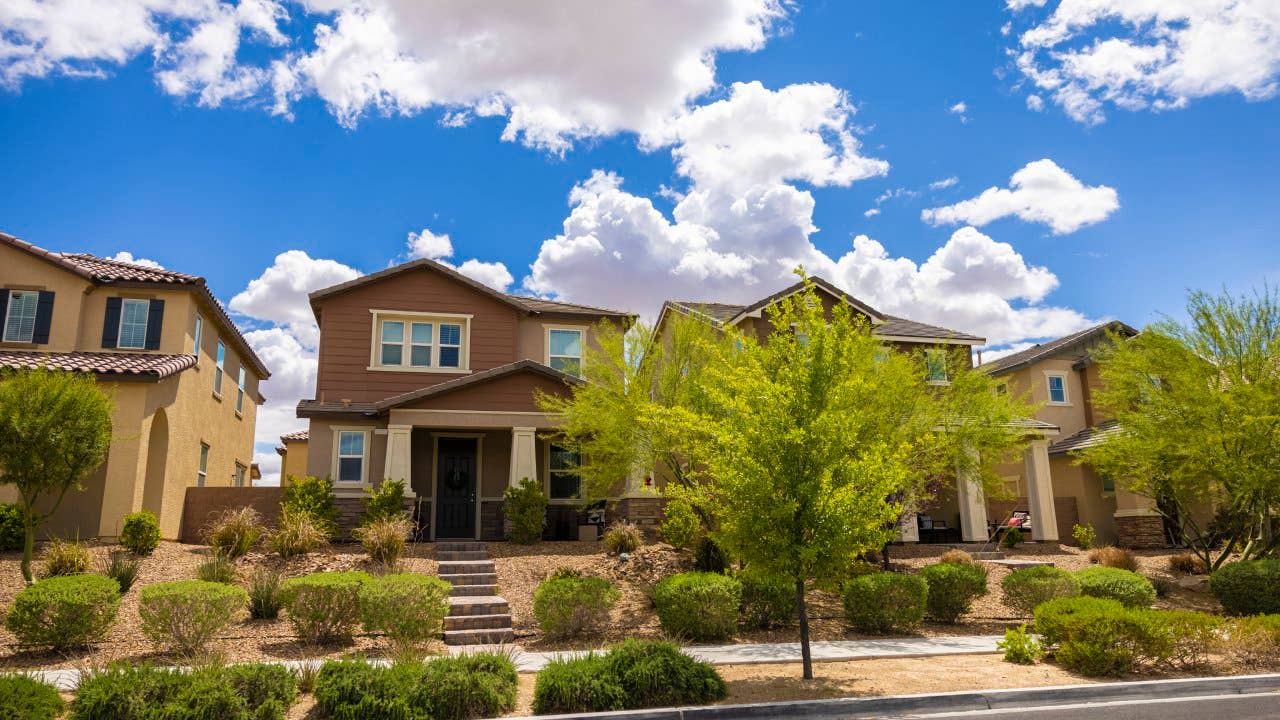How much house can I afford if I make $110,000 a year?

If you’re earning $110,000 per year, give yourself a pat on the back: You’re in the upper half of American earners. According to data from the U.S. Census Bureau, the median household income is just under $71,000. With all that extra cash, you should be in good shape to buy a house, right?
Unfortunately, it’s not quite that simple. Today’s housing market is shaped by stubbornly high mortgage rates that make buying a house difficult for anyone in need of a home loan. Read on to get a sense of how much house you can afford on your $110,000 salary.
The 28/36 rule
Ask any financial expert to help you determine your homebuying budget, and they’ll likely tell you to focus on two numbers: the 28/36 rule. It’s a standard guideline that states you should limit your monthly housing payment to no more than 28 percent of your monthly income, and your total debt payments — including that housing payment — to no more than 36 percent.
If you earn $110,000 in gross income, that’s approximately $9,166 each month. Applying the rule, this means your monthly housing payment should not exceed $2,566, which is 28 percent of your gross monthly income. Based on that math, Bankrte’s mortgage calculator estimates that you should be able to afford a home of around $460,000 — with 20 percent down at a 6.5 percent interest rate, your monthly principal and interest payments would come to $2,336. That leaves you a bit of wiggle room to account for property taxes, homeowners insurance and other variable fees before you’d get to $2,566 — so long as the rest of your monthly debts do not take you past 36 percent.
Some lenders will actually approve significantly higher levels of debt. Don’t let that fool you into thinking it’s a good idea, though. While “28 and 36 percent are good guidelines to use in terms of your own boundaries,” says Greg McBride, chief financial analyst at Bankrate, many loan programs are more permissible.
Just because someone is willing to loan you more money, it doesn’t mean you should take them up on the offer. You’re the one that’s on the hook for repayment.— Greg McBride, Bankrate Chief Financial Analyst
As you try to estimate how much you can afford to spend on a house, Bankrate’s new-home calculator can help crunch the numbers.
How much house can you afford?
Before you start browsing real estate listings, it’s important to educate yourself on some of the most important factors that influence your budget and your borrowing power.
Credit score and debt-to-income ratio
Your credit score is one of the most important pieces of the puzzle when it comes to buying a home. Think of it like the foundation of an actual home: If a lender uncovers any cracks in your credit history, they’re going to be concerned. You can still get a mortgage with a subpar credit score, but lenders will charge you a higher rate to make up for the higher level of risk you represent.
In addition to your credit score, lenders will put your debt-to-income ratio under a microscope. The percentage of your income that goes toward to your debt is the most critical component, but McBride points out that “there are other aspects of your debt that could be red flags to a lender.”
“If you have recent late payments or a number of recent credit inquiries and newly opened accounts, these can show that your debt management is trending in the wrong direction,” McBride says.
Savings
Buying a home is a lot easier if you’ve stashed away a chunk of your income to put toward a down payment. If you can put down 20 percent of the home’s price upfront, you’ll be able to avoid paying for private mortgage insurance premiums — and you may also qualify for a lower interest rate than you would with a smaller down payment.
Let’s break down the monthly payments you’d owe on the same loan with different down payment amounts, using a $350,000 home with a 30-year mortgage at 7 percent interest as an example. With a 20 percent down payment of $70,000, your principal and interest payments each month would come to $1,862. A 10 percent down payment of $35,000 brings that to $2,095 per month, and 3 percent ($10,500) takes it all the way to $2,258. The lesson is clear: The more you have saved for your home purchase, the less you’ll need to pay each month.
Location and must-haves
Your home budget of around $460,000 puts you in the upper half of how much house you can afford — the nationwide median price as of June 2023 was $410,200, according to the National Association of Realtors. But, while you don’t necessarily have to limit your search to the cheapest places to buy a house, it’s still smart to focus on areas where your money goes further, so you don’t stretch yourself too thin. That $460,000 might buy you a mansion in some markets and a cramped condo in others.
Remember, too, that you don’t need every single one of your dream amenities all at once. Spend your money wisely: If you find a home that ticks most of your must-have boxes but lacks a finished basement or a chef’s kitchen, for example, you might save some money by compromising. You can always make updates down the road.
Home financing options
Not sure how much you can actually borrow and what kind of interest rate you can score? The easiest way to get a fairly firm grasp on your home budget is to get preapproved for a mortgage. It’s not a formal commitment, but it does give you a solid idea of how much a lender would be willing to loan you and at what terms. Once you’re ready to buy, you’re not obligated to go with the same lender that preapproved you.
There are quite a few types of mortgage loans, and each comes with different pros and cons. Some require more or less of a down payment, higher or lower minimum credit scores, and more. For example, qualified buyers might be able to get a conventional loan with as little as 3 percent down, or an FHA loan with 3.5 percent down.
If you’re buying your first home, saving enough for that initial down payment can be extra-challenging, since you don’t have money from the sale of a previous home to put toward it. However, many local and state housing authorities have programs that are designed to make the costs more manageable. Down payment assistance programs typically come in the form of grants and low-interest or forgivable loans. Many are specifically designed for low-income buyers, though, so your high $110,000 salary might make you ineligible.
Regardless, it’s definitely worth looking. “What looks like a good salary in one market might be middle of the road in another,” McBride says. “Don’t assume that earning a certain level of income precludes you from certain loan programs and assistance with down payment or closing costs.”
Next steps
Now that you have a better understanding of how much house you can afford with a $110,000 salary, it’s time to decide whether you’re actually ready to buy a house right now. Give careful consideration to what’s next for you, your family and your job, and determine how far your budget can go in your desired area. If you decide to go for it, don’t try to do it by yourself — find a local real estate agent who can help you navigate the local market and negotiate the best deal possible.
Why we ask for feedback Your feedback helps us improve our content and services. It takes less than a minute to complete.
Your responses are anonymous and will only be used for improving our website.
You may also like

Cost to buy a house in Virginia

How much house can I afford with a $180K salary?




